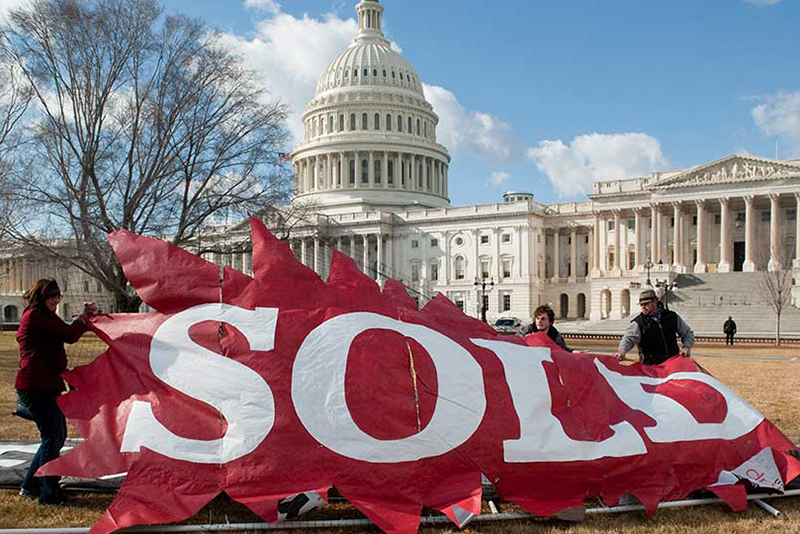Can the Web Save Democracy?
The internet might be a primary season antidote to big money and shoo-ins

For some, the Presidential primary season can’t end soon enough. Not so for Dino Christenson. He wants it to go on even longer. Caucuses and primary elections used to be spread out, from January to June. Today, says the Boston University College of Arts & Sciences associate professor of political science, they’re all inching closer to January, leaving less time for long shots to catch up to the favorites of the party elites. “This is a sad state of affairs for those of us who study elections and believe there’s a democratic process here,” he says. “Why have these nomination campaigns in the first place?”
Enter the internet. It already helps us find dates, raise money for projects, watch endless videos of cats, and voice our opinions to millions. Can it also save democracy? To find out, Christenson and coauthors from Fordham and Michigan State Universities analyzed the online adventures of those angling for the White House in the 2008 primaries. They used a tech consulting firm’s measurements and their own custom “web scraper” program to look at every mention of a candidate in the accessible parts of the internet. “We’re talking about this monstrous collection of data,” Christenson says, “plus a really fine-tooth comb.”
Christenson and his colleagues learned that the internet has done “a pretty good job” boosting candidates, spurring everything from Ron Paul’s rise to Barack Obama’s victory. Their paper, “Deus ex Machina: Candidate Web Presence and the Presidential Nomination Campaign,” won Political Research Quarterly’s 2014 best article award.
In 1996, presidential candidates ventured online for the first time: the sites were sleek for the time, but frill-free and functional by today’s standards—picture an early CNN website. In 2008, aspirants took a deep dive into digital: Obama’s campaign was a major presence on Facebook, YouTube, and Myspace.
The web was an especially effective fundraising tool, one of the most important elements of a campaign. “They often call this the invisible primary,” Christenson says, “the money primary.”
This, too, has helped long shots, who have to rely on small donors. Those $10 and $25 gifts are infinitely easier to gather online. In November 2008, the Washington Post reported that Obama had raised half-a-billion dollars online with an average donation of $80. Christenson found the internet allowed lesser-known candidates to amass enough small donations to reach totals comparable with what a frontrunner could raise from a string of wealthy donor dinners.
The internet can shrink the gap between frontrunners and long shots, but Christenson says results may vary. “Somebody like Obama, without the web, I’d venture to guess wouldn’t have made it, but he had all the credentials to begin with.” At the same time, some candidates are outliers for a reason, he says, and all the web presence in the world can’t save them.
The web isn’t the only factor that’s changing the primary process. In 2010, the Supreme Court’s Citizens United decision helped pave the way for unlimited, independent campaign spending through Super PACs. These political action committees have become major players, throwing unfettered financial support behind (but not to) candidates. “Did the internet just save the day for one election,” Christenson wonders, “and now Super PACs come in?” Maybe not. Christenson says Super PACs seem to focus on attack ads against frontrunners, and when voters see the favorite getting torn apart, “they now have recourse on the internet, to seek out and interact with the other candidates.”
Despite the advantages the internet gives a candidate, Christenson says, frontrunners are still the best bet for now. Bernie Sanders might have an experience like Ron Paul’s—with the internet making a viable candidate out of someone far from the center—but, Christenson notes, Hillary Clinton may not have to worry.
Comments & Discussion
Boston University moderates comments to facilitate an informed, substantive, civil conversation. Abusive, profane, self-promotional, misleading, incoherent or off-topic comments will be rejected. Moderators are staffed during regular business hours (EST) and can only accept comments written in English. Statistics or facts must include a citation or a link to the citation.